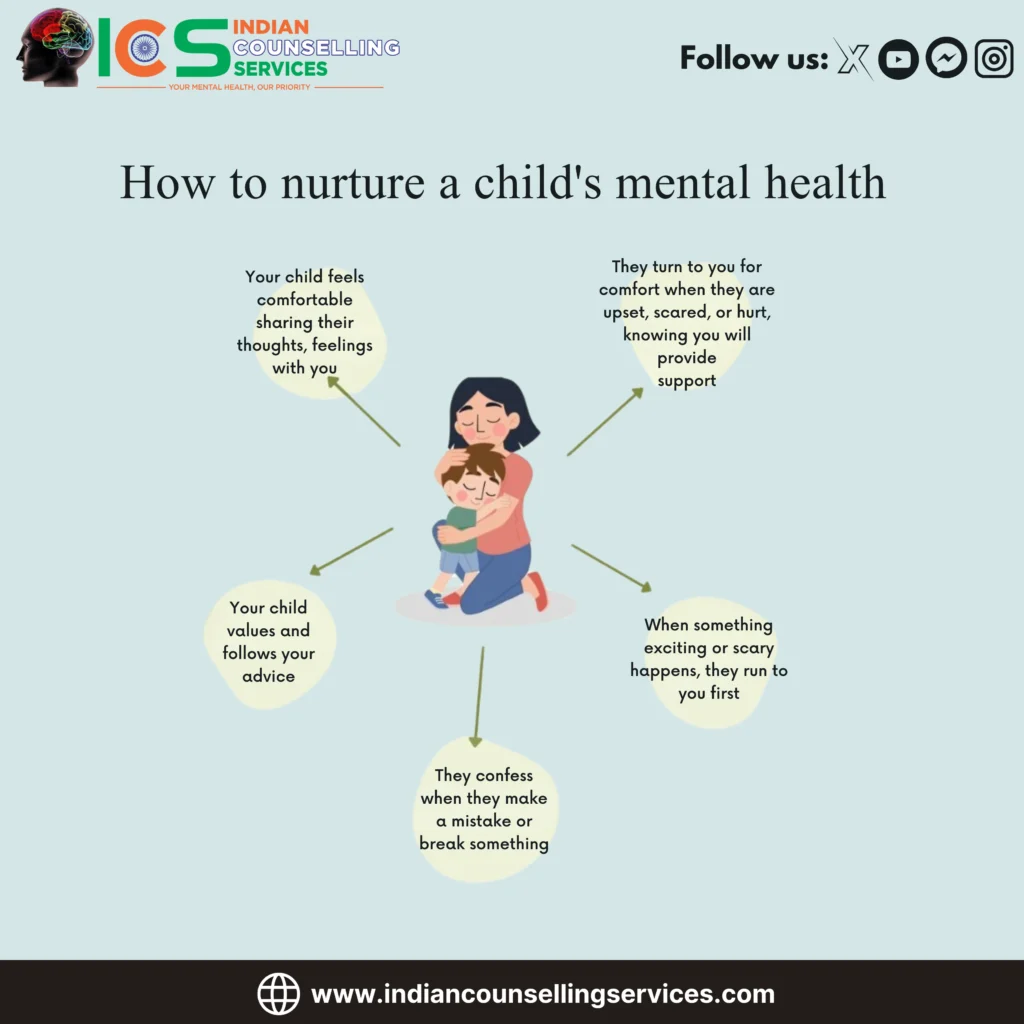
Small Steps, Big Impact: How to Nurture a Child Mental Health Daily
Mental health is an integral part of overall well-being, and its foundation is laid during childhood. Child Mental Health, As parents, caregivers, or educators, our daily actions play a pivotal role in shaping a child’s mental health. The good news? Small, consistent efforts can lead to significant, long-lasting benefits. This article explores practical ways to nurture a child’s mental health every day, helping them develop resilience, self-confidence, and emotional intelligence.
Mental health in children refers to their emotional, psychological, and social well-being. It influences how they think, feel, and behave, as well as how they handle stress, relate to others, and make choices. A healthy mind allows children to thrive at home, school, and in their communities. However, the pressures of modern life, academic expectations, and social dynamics can challenge their mental well-being.
Recognizing the importance of nurturing mental health early is crucial. Research shows that early intervention and positive reinforcement can significantly reduce the risk of mental health issues later in life. By incorporating simple, intentional practices into daily routines, caregivers can create an environment that fosters mental and emotional growth.

- Create a Safe Space: Children need to feel safe and secure to express themselves. A supportive environment begins with open communication, where children feel heard and understood. Encourage them to share their feelings without fear of judgment or punishment.
- Set Clear Boundaries: Consistent rules and boundaries provide a sense of stability. Knowing what to expect helps children feel secure and reduces anxiety. Be firm yet empathetic when enforcing these boundaries.
- Foster Positive Relationships: Strong relationships with family members, teachers, and peers are essential for a child’s mental health. Spend quality time together, engage in meaningful conversations, and show genuine interest in their lives.
- Start the Day with Gratitude: Begin each day by encouraging your child to share something they’re grateful for. Gratitude promotes a positive mindset and helps children focus on the good in their lives.
- Encourage Physical Activity: Regular physical activity is not only good for the body but also for the mind. Activities like playing outside, dancing, or participating in sports can boost mood, improve concentration, and reduce stress.
- Practice Mindfulness: Teach children simple mindfulness exercises, such as deep breathing or short meditations. Mindfulness helps them stay present, manage their emotions, and handle stressful situations more effectively.
- Limit Screen Time: Excessive screen time can negatively impact mental health, leading to sleep disturbances, reduced attention spans, and increased anxiety. Set reasonable limits and encourage activities like reading, crafting, or outdoor play instead.
- Prioritize Sleep: A well-rested child is better equipped to handle challenges. Establish a consistent bedtime routine and ensure they get the recommended hours of sleep for their age group.
- Recognize and Validate Feelings: Help children identify their emotions by naming them. For example, “I see you’re feeling frustrated.” Validation teaches them that all emotions are normal and acceptable.
- Model Healthy Coping Mechanisms: Children learn by observing. Demonstrate healthy ways to manage stress, such as talking things out, taking a break, or engaging in a relaxing activity.
- Encourage Problem-Solving: Instead of solving problems for them, guide children in finding their own solutions. This builds confidence and resilience.
- Encourage a Growth Mindset: Teach children that mistakes are opportunities to learn. Praise their efforts rather than just their achievements to help them develop perseverance.
- Celebrate Small Wins: Recognize and celebrate their accomplishments, no matter how small. Positive reinforcement boosts self-esteem and motivates them to keep trying.
- Teach Adaptability: Life is full of changes. Helping children adapt to new situations or challenges equips them to handle future uncertainties more confidently.
- Eat Meals Together: Family meals are an excellent opportunity to bond and communicate. Use this time to share stories, discuss daily happenings, and connect on a deeper level.
- Create Rituals and Traditions: Whether it’s a weekly game night or a special bedtime story routine, traditions foster a sense of belonging and stability.
- Show Unconditional Love: Let your child know they are loved no matter what. Physical affection, kind words, and active listening reinforce their sense of self-worth.
Recognizing When to Seek Help
Despite our best efforts, there may be times when a child needs professional support. Warning signs of mental health challenges include:
- Persistent sadness or irritability
- Withdrawal from friends and family
- Sudden changes in behavior or academic performance
- Difficulty concentrating
- Excessive fears or worries
If these signs persist, consult a pediatrician, school counselor, or mental health professional. Early intervention can make a significant difference.
The Role of Schools and Communities
- Promote Mental Health Education: Schools can integrate mental health awareness into their curriculum, teaching children about emotions, coping strategies, and empathy.
- Provide Safe Spaces: Having counselors or support groups within schools creates a refuge for children facing challenges.
- Encourage Community Involvement: Participating in community activities or volunteering can boost a child’s self-esteem and sense of purpose.
Nurturing a child’s mental health doesn’t require grand gestures or expert knowledge. Simple, intentional actions—like listening to them, encouraging their efforts, and creating a supportive environment—can have a profound impact. By focusing on small daily steps, we can help children build the emotional resilience and self-confidence they need to navigate life’s challenges. Remember, the key is consistency. The seeds of mental well-being we plant today will blossom into a healthier, happier future for our children.
